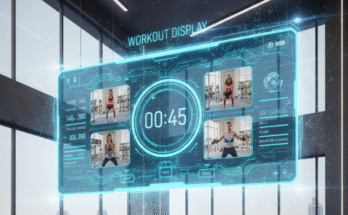In the rapidly evolving retail landscape, where customers expect seamless and meaningful interactions, WhatsApp CRM Integration stands out as a powerful solution. By connecting the world’s leading messaging platform – with over 2 billion users – to customer relationship management (CRM) systems, retailers can streamline communications, personalize outreach, and deepen loyalty. This article explores how this integration is redefining retail through hyper-personalized engagement, offering practical insights, real-world examples, and a look at future trends.
The power of personalization in retail
Retail is no longer about transactions; it’s about building relationships. Customers crave relevance, and generic marketing falls short. Data shows that personalized experiences can increase sales by 20%, but siloed data often blocks progress. WhatsApp CRM integration bridges this gap by leveraging a platform customers already trust for customized, real-time communications.
Imagine a customer abandoning an online shopping cart. A generic email might be ignored, but with WhatsApp integrated into a CRM, the system taps into their profile-purchase history, preferences-and delivers a targeted nudge: “Hi Sarah, these red sneakers are still available! Grab them at 10% off.” This approach can reduce cart abandonment by 25% and builds trust. In brick-and-mortar stores, associates can use WhatsApp for customer engagement, sending curated suggestions after a visit to turn one-time shoppers into regulars.
The rise of omnichannel retailing amplifies this need. Customers move fluidly between online, in-store, and mobile touchpoints. Integrating WhatsApp with a CRM unifies these interactions and provides a holistic view of the customer journey. By analyzing WhatsApp chats alongside purchase data, retailers can identify preferences such as favorite products or shopping times, enabling precise upsell opportunities such as suggesting accessories based on live inventory. Success hinges on a customer-centric mindset, with teams trained to craft empathetic, non-intrusive messages.
Understanding the WhatsApp CRM Integration
This integration connects the WhatsApp Business API—a scalable enterprise tool—with CRMs like HubSpot, Salesforce, or Zoho, enabling seamless data exchange. Unlike the basic WhatsApp Business app, the API supports high-volume messaging, automation, and analytics, ideal for the needs of the retail industry. Businesses exploring hubspot implementation can leverage this connection to ensure their customer data flows smoothly across touchpoints, unlocking deeper personalization opportunities.
Retailers benefit from real-time data synchronization that captures message timestamps, media, and read receipts to enrich CRM profiles. This powers features like chatbots for instant queries (“Where’s my order?”) or personalized sales broadcasts. Setup is easy: native integrations in HubSpot sync chats to contact timelines, Salesforce connectors via the AppExchange trigger CRM updates, and Zoho’s affordable tools map WhatsApp data to CRM modules. For non-technical users, middleware like Zapier or platforms like Gallabox simplify the process.
Security is non-negotiable. End-to-end encryption and GDPR compliance keep data safe, and opt-in consent maintains customer trust. This setup turns WhatsApp into a retail powerhouse that combines familiarity with functionality.
Benefits that drive retail success
WhatsApp CRM integration delivers tangible value in engagement, efficiency, and growth:
- Unified Communication: All customer interactions – WhatsApp chats, purchase history – are in one CRM dashboard, simplifying workflows.
- Stronger engagement: With over 90% open rates, WhatsApp outperforms email’s 20%, fostering real-time, two-way conversations that resonate.
- Automation Efficiency: Bots handle routine tasks like order confirmations, freeing agents to handle complex requests and saving time.
- Tailored Experiences: CRM insights enable personalized messages, such as loyalty rewards, that increase customer retention by 15-20%.
- Revenue Growth: Targeted campaigns based on buying patterns drive upsells, while inventory synchronization prevents overselling.
- Actionable Insights: Analytics reveal engagement trends and help refine strategies.
Small retailers save money by reducing manual tasks, while all businesses benefit from loyal customers who spend 23% more when engaged. This integration turns data into delightful, profitable interactions.
How to Implement WhatsApp CRM Integration
Implementing this integration is practical with a clear approach:
- Choose a CRM: Choose HubSpot for marketing focus, Salesforce for enterprise needs, or Zoho for affordability.
- Secure WhatsApp Business API: Verify your business through Facebook Business Manager to ensure compliance.
- Set up the integration: Use native connectors (such as HubSpot’s settings) or third-party tools like Wati for no-code setup.
- Design workflows: Define triggers, such as messages that update CRM records or new leads that create WhatsApp contacts.
- Test and train: Run test campaigns, verify data synchronization, and train staff to prioritize personalization.
- Ensure compliance: Use approved templates and track opt-outs to stay ethical.
Expect to pay for WhatsApp’s per-conversation fees ($0.01-$0.05) and CRM subscriptions. Start with customer support, then scale to marketing, and use analytics to measure impact, such as faster response times or increased conversions.
Real-world retail impact
Retailers around the world are demonstrating the power of this integration:
- An Indian e-retailer automated order updates and recommendations via WhatsApp CRM, cutting query times in half and increasing sales by 15%.
- A global brand used the WhatsApp API for localized promotions, tripling engagement in key markets.
- A luxury retailer sent curated WhatsApp updates, increasing return visits by 30%.
- A small boutique chain integrated Zoho with WhatsApp, reducing cart abandonment by 20% with timely follow-ups.
These stories show how data-driven personalization creates memorable customer experiences.
Navigating challenges
Challenges arise, but solutions keep retailers on track:
- Technical hurdles: API incompatibilities can slow setup. Platforms like Cue provide guided integration.
- Data privacy: Encryption and opt-ins ensure GDPR compliance and trust.
- Scalability: Cloud-based CRMs seamlessly handle high volumes.
- Team Adoption: Training ensures employees embrace the system.
- Cost Control: Start small, track ROI, and expand strategically.
Proactive planning turns potential obstacles into opportunities for growth.
What’s next in 2025
AI will supercharge personalization, analyzing WhatsApp sentiment to predict customer needs. Future integrations may include voice, video, and in-chat payments, streamlining transactions. Increased regulation will demand ethical use of AI, reinforcing trust as a cornerstone of retail.
The bottom line.
WhatsApp CRM integration enables retailers to deliver personalized, engaging experiences that drive loyalty and revenue. With this strategy, businesses can meet customers where they are and foster the connections that define the future of retail. Start today to unlock tomorrow’s potential.




